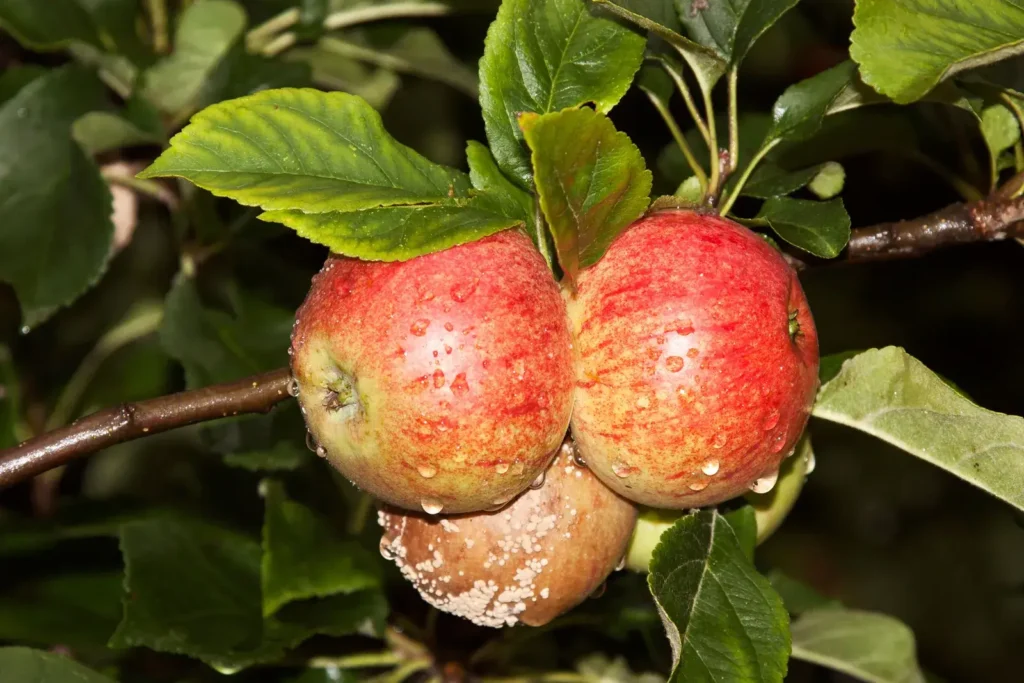If kept on the counter, apples last up to seven days. In the pantry, they maintain quality for about three weeks. Once sliced, refrigerate and consume within three to five days.
CUPERTINO, CALIFORNIA | NOW THEN DIGITAL — Apples’ shelf life varies based on storage methods. In the fridge, they last around four to six weeks. To extend this to six to eight weeks, store them unwashed, whole, and individually wrapped.

Expert advice suggests that refrigerated apples can endure for six to eight weeks. If left on the counter, expect a shelf life of up to seven days. In the pantry, they stay fresh for about three weeks. Once sliced, they maintain quality for three to five days in the fridge.
If transformed into applesauce, they remain good for seven to ten days in the fridge. When used in recipes like apple pie, they last three to five days when refrigerated.
How to Store Apples to Make Them Last Longer
To prolong the freshness of apples, proper storage is essential. Here’s how to store apples for an extended shelf life:
- Refrigerate Them: Apples can last 4-6 weeks in the fridge at a temperature of 30°F to 35°F. They prefer the cool environment of the refrigerator. Before refrigerating, wipe off any debris, place them in a plastic bag, and store them in the crisper drawer.
- Keep Them Unwashed: Preserve the natural wax by not washing apples until just before consumption. This wax prevents drying out and protects against certain fungi.
- Store Whole: Apples stay fresher when stored whole.
- Individually Wrap: Extend their shelf life (6-8 weeks) by individually wrapping apples in the fridge.
- Maintain Proper Conditions: For a few apples, use the fridge’s crisper drawer. Place them in a perforated plastic bag or cover them with a damp paper towel in a dark, humid, and cold environment.
- Separate from Other Produce: Apples release ethylene gas, which can hasten the decay of nearby produce. Keep them separate.
By following these steps, you can enjoy your apples for an extended period while keeping them fresh.

How to Tell If Apples Have Gone Bad
It’s crucial to recognize signs of spoilage in apples to prevent consumption of bad ones. Here’s what to look for:
- Dark Brown or Black Marks: Rot is evident with dark brown or black marks on the skin.
- Soft Spots or Bruises: Healthy apples are firm; soft spots or bruises indicate spoilage.
- Wrinkled Skin: Wrinkled skin signifies loss of freshness.
- Holes and Brown Blemishes: The presence of holes or brown blemishes indicates deterioration.
- Oozing Liquid: Oozing liquid from the skin is a red flag.
- Mushy Texture: A rotten apple is softer and grainy when its skin wrinkles; avoid consumption.
- Mealy or Bland Taste: If it tastes mealy, bland, or grainy, it’s past its prime.
When any of these signs appear, discard the apple to avoid health risks.
Freezing Apples to Extend Freshness
Yes, freezing apples is an effective way to prolong their shelf life. This preservation method is particularly useful for future use in recipes like apple pie, applesauce, or smoothies. Here’s how to freeze apples:
- Preparation: Start by washing, peeling, and coring the apples.
- Slicing: Slice the apples into wedges or thin slices, depending on your intended use. Avoid cutting them too thinly to prevent mushiness after freezing.
- Anti-Browning Treatment: Soak the apple slices in a solution of saltwater or lemon juice to prevent browning.
- Draining and Freezing: Drain the slices and arrange them on a parchment paper-lined baking sheet, ensuring they don’t touch each other. Freeze until solid, which usually takes a few hours.
- Storage: Once frozen, transfer the apple slices to an airtight container or freezer bag. Don’t forget to label the container with the date. Store them in the freezer for up to six months.
When you’re ready to use the frozen apples, you can incorporate them directly into your recipes without thawing. With proper storage, frozen apples can maintain their quality for up to a year in the freezer.
When you’re ready to use them, you can add the frozen apple slices directly to your recipes without the need for thawing. Properly stored, frozen apples can remain good for up to a year in the freezer.

What Are Some Common Types of Apples That Spoil Faster Than Others
Certain apple varieties are more susceptible to spoilage due to factors like thin skin and water content. Here are some common types:
- Red Delicious: These apples have thin skin and a high water content, making them prone to bruising and rot.
- Golden Delicious: Similar to Red Delicious, they have thin skin and high water content, making them susceptible to bruising and rot.
- McIntosh: McIntosh apples are soft-textured with thin skin, making them more likely to bruise and rot.
- Cortland: Thin-skinned with a high water content, Cortland apples are vulnerable to bruising and rot.
- Gala: With thin skin and high water content, Gala apples are susceptible to bruising and rot.
- Honeycrisp: Honeycrisp apples, with thin skin and high water content, are prone to bruising and rot.
- Braeburn: These apples have thicker skin and lower water content, making them less susceptible to bruising and rot.
Proper storage techniques can help extend the freshness of apples, regardless of the variety. Following storage guidelines is essential to keep apples fresh for a longer duration.
It’s worth noting that proper storage can help extend the shelf life of apples, regardless of the variety. By following storage guidelines, you can keep apples fresh for a longer duration.
Risks of Eating Expired Apples

Eating aging apples isn’t always safe, as they can develop mold like other fresh produce. Mold results from microorganisms and can trigger allergies or respiratory issues in some individuals.
Certain microorganisms produce mycotoxins, which are culprits behind many foodborne illnesses. Apples can harbor a mycotoxin called patulin, produced by the Penicillium expansum species. Ingesting large amounts of patulin may lead to nausea, bleeding ulcers, and potentially increase the risk of cancer.
Furthermore, mycotoxins can disrupt gut bacteria, potentially compromising the immune system and elevating the risk of other illnesses.
Editor’s Note: If you come across any inaccurate or outdated content, kindly reach out to us at press@nowthendigital.com for immediate assistance.

















